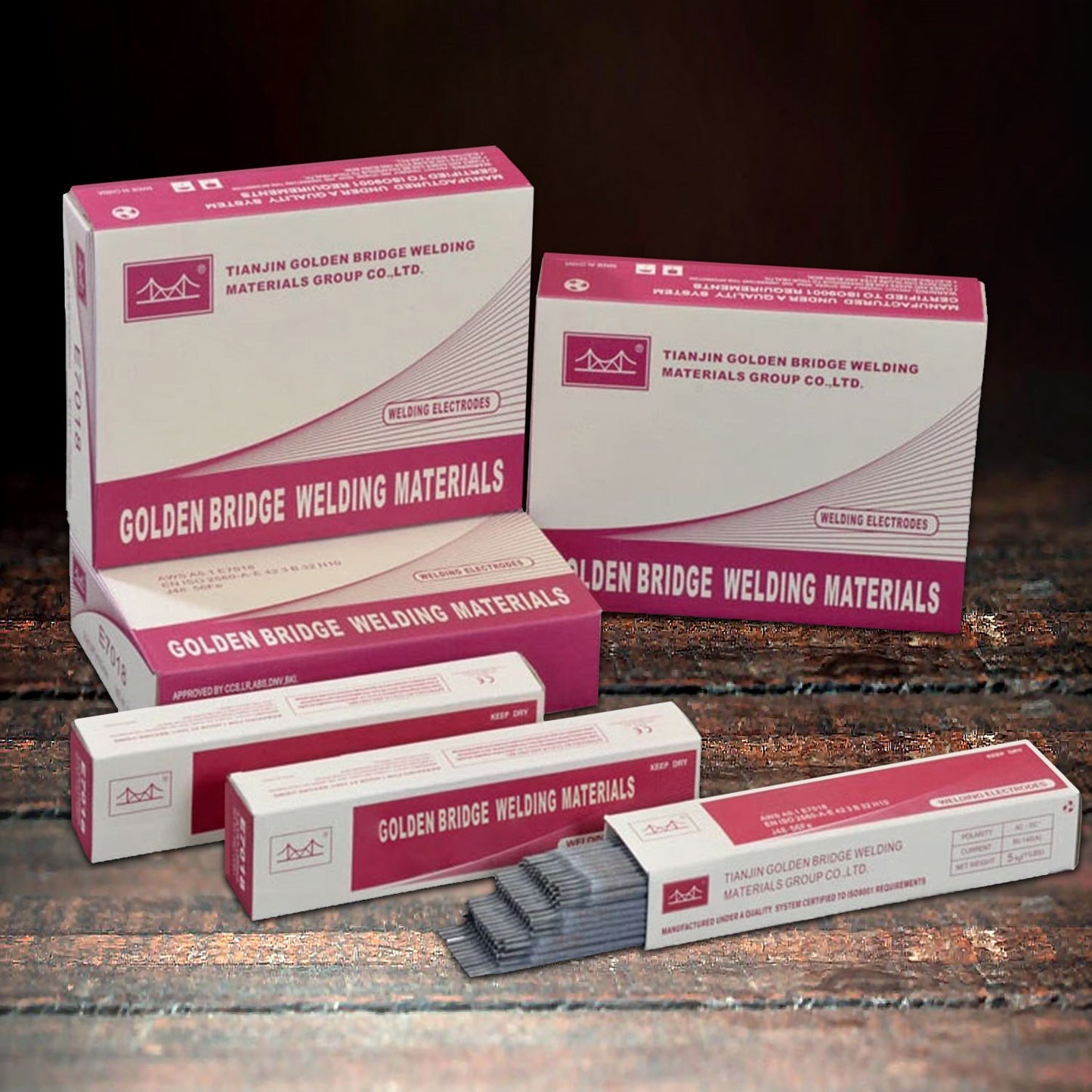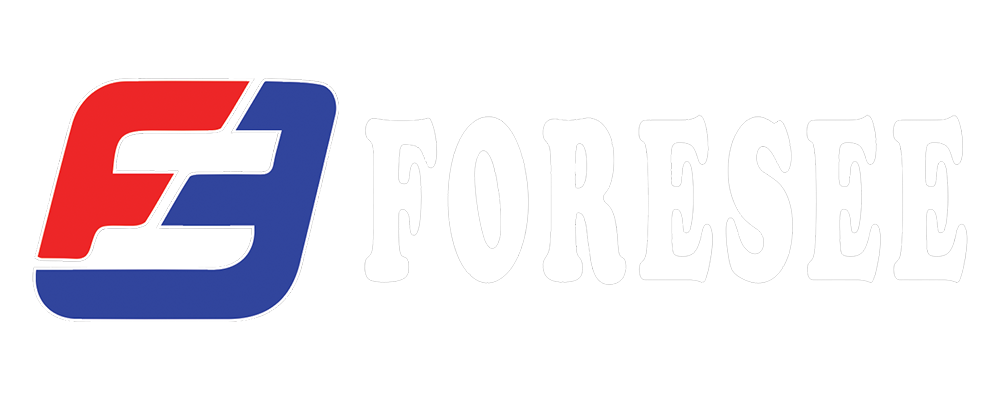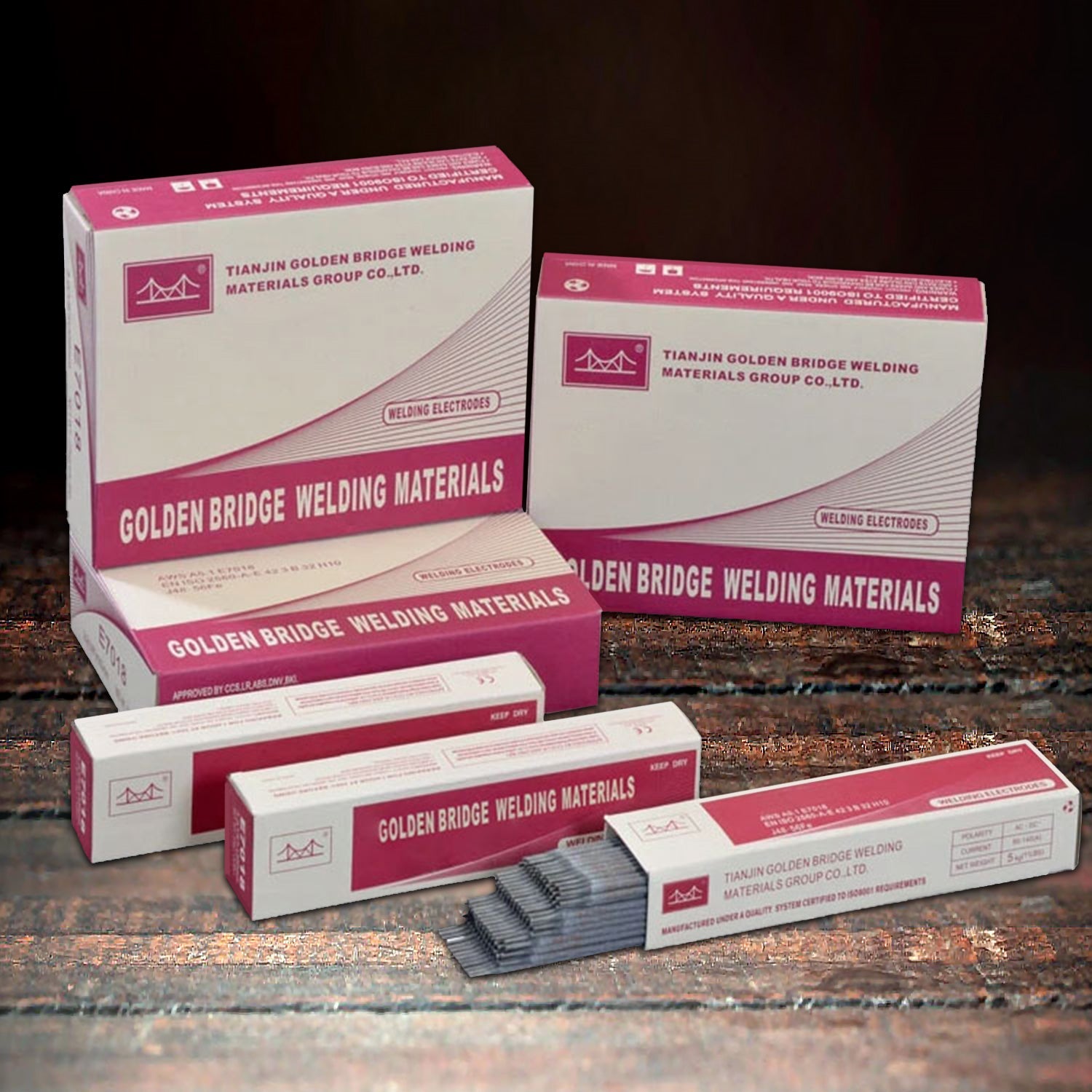Golden Bridge
Golden Bridge E7015 (JQ-J507NP) Electrode
Golden Bridge E7015 (JQ-J507NP) Electrode
SKU:JQ-J507NP-3/32-11

| AWS A5 Series Code | American Welding Society (AWS) Standard Title |
| AWS A5.1 | Carbon Steel Electrodes for Shielded Metal Arc Welding (SMAW) |
| AWS A5.2 | Carbon and Low-Alloy Steel Rods for Oxyfuel Gas Welding (OFW) |
| AWS A5.3 | Aluminum and Aluminum Alloy Electrodes for Shielded Metal Arc Welding (SMAW) |
| AWS A5.4 | Stainless Steel Electrodes for Shielded Metal Arc Welding (SMAW) |
| AWS A5.5 | Low-Alloy Steel Electrodes for Shielded Metal Arc Welding (SMAW) |
| AWS A5.6 | Copper and Copper-Alloy Electrodes for Shielded Metal Arc Welding (SMAW) |
| AWS A5.7 | Copper and Copper Alloy Bare Welding Rods and Electrodes |
| AWS A5.8 | Filler Metals for Brazing and Braze Welding. |
| AWS A5.9 | Carbon Steel Electrodes and Fluxes for Submerged Arc Welding (SAW) |
| AWS A5.10 | Bare Aluminum and Aluminum-Alloy Welding Electrodes and Rods. |
| AWS A5.11 | Nickel and Nickel Alloy Welding Electrodes for Shielded Metal Arc Welding (SMAW), Gas Tungsten Arc Welding (GTAW), and Plasma Arc Welding (PAW) |
| AWS A5.12 | Tungsten and Tungsten Alloy Electrodes for Arc Welding and Cutting |
| AWS A5.13 | Surfacing Electrodes for Shielded Metal Arc Welding (SMAW) |
| AWS A5.14 | Nickel and Nickel-Alloy Bare Welding Electrodes and Rods |
| AWS A5.15 | Welding Electrodes and Rods for Cast Iron |
| AWS A5.16 | Titanium and Titanium Alloy Welding Electrodes and Rods |
| AWS A5.17 | Carbon Steel Electrodes and Fluxes for Submerged Arc Welding (SAW) |
| AWS A5.18 | Carbon Steel Electrodes and Rods for Gas Shielded Arc Welding (GMAW) |
| AWS A5.19 | Magnesium Alloy Welding Electrodes and Rods |
| AWS A5.20 | Carbon Steel Electrodes for Flux Cored Arc Welding (FCAW) |
| AWS A5.21 | Bare Electrodes and Rods for Surfacing |
| AWS A5.22 | Stainless Steel Electrodes for Flux Cored Arc Welding (FCAW) |
| AWS A5.23 | Low-Alloy Steel Electrodes and Fluxes for Submerged Arc Welding (SAW) |
| AWS A5.24 | Zirconium and Zirconium-Alloy Electrodes and Rods for GTAW, GMAW, PAW (Plasma Arc Welding) |
| AWS A5.25 | Specification for Carbon and Low-Alloy Steel Electrodes and Fluxes for Electroslag Welding (ESW) |
| AWS A5.26 | Specification for Carbon and Low-Alloy Steel Electrodes for Electrogas Welding (EGW) |
| AWS A5.27 | Specification for Carbon and Low-Alloy Steel Electrodes and Rods for Gas Shielded Arc Welding |
| AWS A5.28 | Specification for Low-Alloy Steel Electrodes and Rods for Gas Shielded Arc Welding |
| AWS A5.29 | Specification for Low-Alloy Steel Electrodes for Flux Cored Arc Welding (FCAW) |
JQ-J507NP
Chemical components of deposited metal (%)
Test item |
C |
Mn |
Si |
S |
P |
Ni |
Cr |
Mo |
V |
Cu |
| Example value | 0.058 | 1.03 | 0.42 | 0.007 | 0.016 | 0.007 | 0.038 | 0.005 | 0.007 | 0.015 |
Mechanical properties of deposited metal
Test item |
Rm(MPa) |
ReL/Rp0.2(MPa) |
A(%) |
KV2(J) -30℃ |
| Example value | 560 | 470 | 30 | 190 |
Reference current (DC+)
Welding electrode diameter (mm) |
Φ2.5 |
Φ3.2 |
Φ4.0 |
Φ5.0 |
| Welding current (A) | 60-90 | 80-120 | 130-180 | 170-220 |
2. Impurities such as rust, oil stain and moisture must be cleared off of the work piece before welding.
3. Operating with short arc and narrow gap when welding.





What you cover in your shipping policy and how you communicate it will be highly dependent on your current business operations and supply chain. The goal is to be transparent with customers.
As 2020 brings unforeseen shipping delays and increased carrier costs, it's more important than ever to keep your shipping policy up to date with the following key points in mind:
- Essential shipping details are easy to find. While it is common practice to keep a link to your shipping policy page in the footer of your website, consider how you can also surface important shipping details in the right place at the right time (e.g. on your product page or website banner).
- Clear and concise presentation. Don’t make customers comb through your shipping policy page for the information they need. Whenever possible, make it easy to navigate with clear subheadings, tables, bolded text, and links to learn more.
- Order processing times. After an order is placed, how many days will it take to get it ready to ship? It’s worth communicating if you’re excluding weekends and/or holidays, and if you have certain cutoff times for processing orders (e.g. orders received after 5pm will be processed the next business day). If changes occur within your supply chain, due to peak periods or as a result of COVID-19, you should update your processing times to reflect it.
- Domestic and international shipping options. What are the qualifying regions for your domestic shipping options? International shipping can be broken down in its own section where you list the countries you ship to and estimated delivery timelines. If you offer several shipping options, you can list them in a table so the information is easy to scan. Shipping costs. Break down your shipping costs for the customer. If you have a free shipping threshold, you can communicate in various places as an incentive for customers. Any potential surprise fees should be surfaced too, such as duties and taxes the customer may incur.
| Diameter |
* 3/32 inches (2.5 mm), * 1/8 inches (3.2 mm), * 5/32 inches (4.0 mm), * 3/16 inches (5.0 mm) |
|---|---|
| Package |
11 lb (5 kg), 44 lb (20kg) |

